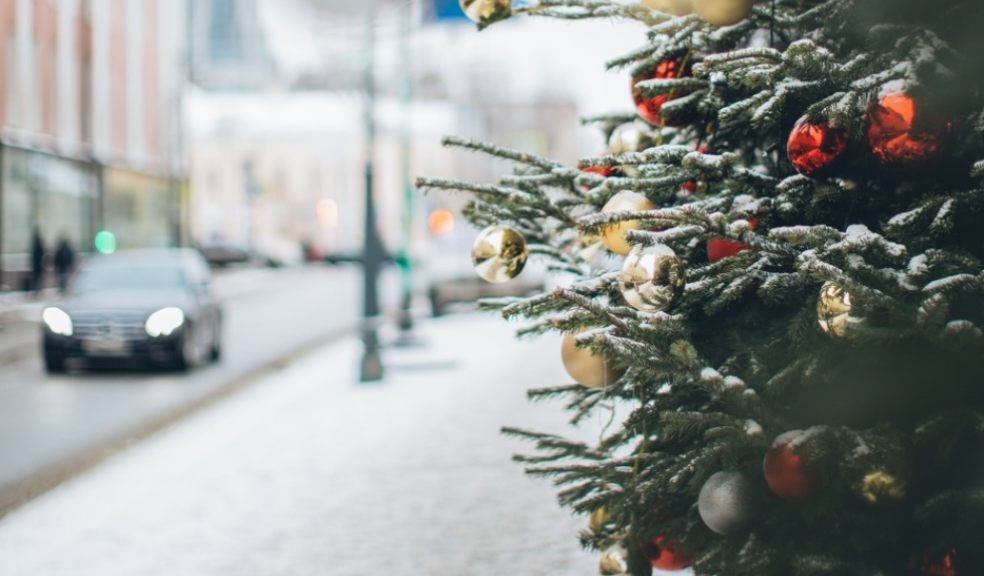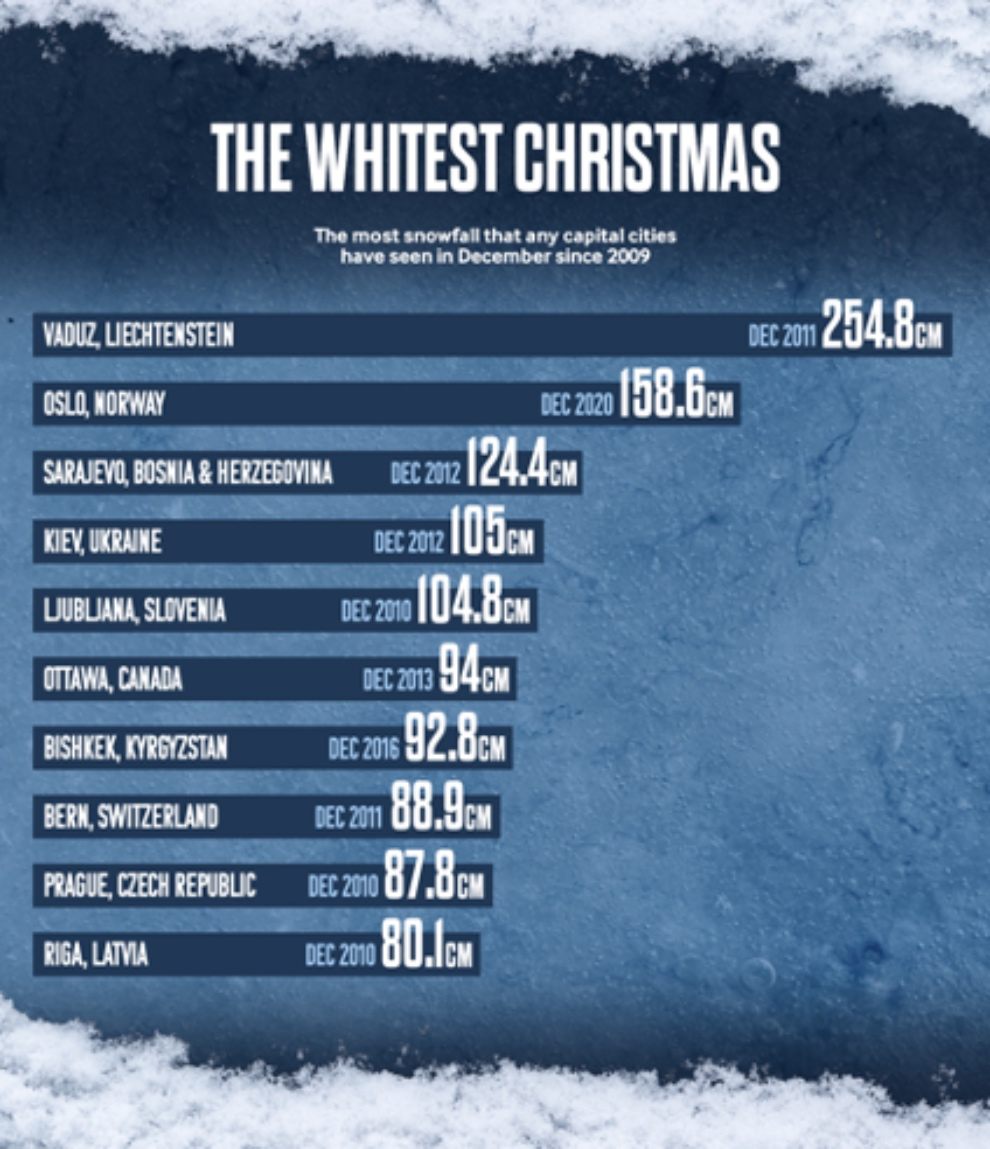
Is Climate Change Impacting our Chance of a White Christmas?
For lots of us, the thought of snow on Christmas day is one that we dream of –it’s even something that Bing Crosby sings about! The image of white Christmas is everywhere – Christmas cards, movies, advent calendars and even wrapping paper all are covered with snowmen and snowy scenes. If you live in the UK then you may have experienced one or two white Christmases but realistically it is rare to see snow on Christmas Day. In fact, it has been over 10 years since the UK saw any snowfall on Christmas Day!
Snowfall in the UK
As much as we might all dream of a white Christmas, realistically we’re far more likely to see snow at the start of the year than we are at the end. On average we see 3.9 days of sleet/snow in December whereas January sees 5.3 days, February 5.6 days and even March sees 4.2 days. We can generally see whether we’re likely to have snow or not around 5 days before Christmas, so those that wish to place a bet might choose to wait until nearer the time to see whether a bet is worth their while.
What Counts as a White Christmas?
Each country will have their own rules when it comes to declaring a white Christmas, but the Met Office in the UK counts a white Christmas as a snowflake is observed to be falling in the 24 hours of Christmas Day. Traditionally it was always seen as if snow fell on the Met Office in London however this has been expanded to include places in cities such as Manchester, Edinburgh, Aberdeen and Belfast, to give a much fuller picture of Christmas day and the snowfall it may or may not see.
Is Climate Change Impacting Our Chance of a White Christmas?
The last white Christmas we had in the UK was in 2010 – which is on the record books for seeing a really unusual pattern of snowfall because around 83% of the stations where snow is checked for saw snow on the ground – something rarely seen at Christmas. If you look back at what records and information we have on historical Christmases, it does appear that a white Christmas was much more likely in the 18th and 19th centuries. We know that climate change means that there are higher average temperatures across the country and this will of course reduce the chances we have of seeing a white Christmas.
Where Might Experience a White Christmas?
Recent research done by Betway Insider shows that if you do want the chance to experience a white Christmas then you have the best possible chance if you travel to Russia, Iceland or Estonia. These have all experienced more than a handful of white Christmases since 2009 and as such statistically have a much better chance of snow than the UK. Even if the UK does have a fluttering of snow this year it is unlikely to be a real blanket covering of snow, which we’re far more likely to see at the start of 2022!





















